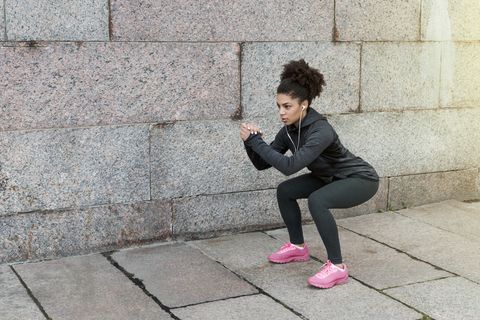I’ve always been interested in food. 😁
The adult human body re-generates (totally replaces every
cell) roughly once every 7 years. The old you goes down the toilet (mostly).
Unlike plants that make their nutrition in leaves with air and sunlight, humans
need to consume food to grow, repair and provide energy. I'm so glad.
We are literally made out of food…in fact, the food that we’ve eaten in the
past 7 years. So, it seems to make sense to ensure the food we put in is the right stuff to make the body we want..
There’s always a lot of talk about the energy side of food –
carbos and fats.
In this post/blog I want to talk about the other major food group:
Protein
If you have a lack of it, you will lose muscle mass – this cuts strength, slows metabolism, can cause anemia, weakness and
fatigue. Too little protein leads to lethargy; hair, nails and skin issues,
increased risk of stress fractures, risk of infections, mood changes (dopamine,
serotonin), loss of balance, slowness to heal, staying sick longer, sugar
cravings, bigger appetite etc
What it does for us:
- It's essential for growth, repair and maintenance. Body replaces
every cell in your body every 7 years.
- Causes biochemical reactions – digestion, energy
production, blood clotting, muscle contraction
- Acts as messenger – hormones. Signals uptake of
glucose into cell (energy)
- Signals breakdown of fat stored in liver, signals kidneys to reabsorb water,
stimulates release of cortisol, stimulates growth of tissue and one
- Provides structure - keratin (structural protein - skin hair nails), collagen (structural protein of bones, tendons, ligaments and skin), Elastin - allows tissues to be flexible - lungs, arteries, uterus...
- Maintains proper ph - essential for correct hemoglobin balance that makes up red blood cells
- Balances fluids - albumen and globulin help maintain fluids by attracting and retaining water. Lack of can lead to edema and swelling
- Bolsters Immune Health - proteins help provide immunoglobulins or antibodies to fight infection
- Transports and stores nutrients - proteins carry substances throughout your bloodstream - into cells and out. Things like vitamins, minerals, blood sugar, oxygen...
- Provides Energy- It can provide the same energy as carbs but you don't want it to as it's essential for other roles. In a state of fasting (or insufficient protein) your body will break down skeletal muscle to provide energy - leads to weakness and fatigue.
Protein will:
boost metabolism and aid fat burning.
reduce appetite, hunger and food cravings
lower blood pressure
help maintain weight loss
help repair after injury
help you stay fit as you age
be good for your bones
Runners/athletes need 1.2g per kg of body weight
per day.
For me that’s about 90g. I need to eat 30g per meal. Not all of it in one meal
as it’s not stored by the body (unlike carbs).
A typical cereal breakfast with milk gives you 10-15g of protein. Not enough.
Eggs give about 8g. Bacon slice about 5g. Wholemeal bread slice 4g. Or if you
can’t eat that much go for a protein shake?
Then another 2 meals in the day each with 30g of protein.
There is no point fasting for the day and then eating a huge meal with 90g of protein in the evening. Your body needs it in small equal doses throughout the day.
As was said above, if you don’t eat enough protein then recovery will be less assured and so will
be the benefit of your training. Why train hard and then reduce it's benefit by eating poorly?
Some examples of good protein providers:
Fish, cheese and all kinds of meat are over 20% protein. Eat 100g of chicken say, and you'll get 20g of protein.
Eggs are roughly 15% protein. Oats 17%. Bread (wholewheat) 11%.
Nuts and beans have roughly 15-20% - peanuts, almonds are high in protein as are sunflower seeds, chickpeas, and kidney beans.
Fresh vegetables and fruit are low in proteins generally but provide other important nutrients.
Have a good look at the nutritional value on food packets to get more ideas. Some are well set out to tell you what a portion is giving you:
Peanuts
Bread


